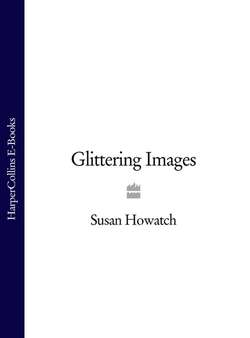Читать книгу Glittering Images - Susan Howatch - Страница 9
I
ОглавлениеMy ordeal began one summer afternoon when I received a telephone call from the Archbishop of Canterbury. It was a hot day, and beyond the window the quadrangle of Laud’s shimmered in the hazy light. Term had ended; the resulting peace provided an atmosphere conducive to work, and when the telephone rang it was with reluctance that I reached for the receiver.
A voice announced itself as Lambeth Palace and proclaimed that His Grace wished to speak to Dr Ashworth on a matter of extreme urgency. Apparently the Archbishop was still infecting his chaplains with his love of melodrama.
‘My dear Charles!’ Dr Lang’s voice, always sonorous, now achieved a pitch of theatrical splendour. He was a member of that generation which regards the telephone as at worst a demonic intruder and at best a thespian challenge, and when I inquired diplomatically about his health I was treated to a dramatic discourse on the more tedious aspects of senectitude. The Archbishop, on that first day of July in 1937, was in his seventy-third year and as fit as an ecclesiastical grandee has a right to expect, but in common with all men he hated the manifestations of old age.
‘… however enough of my tiresome little ailments,’ he concluded as I added the finishing touches to the mitre I had sketched on my memo-pad. ‘Charles, I’m preaching at Ely next Sunday, and because I’m most anxious that we should meet I’ve arranged to spend the night in Cambridge at the house of my old friend the Master of Laud’s. I shall come to your rooms after Evensong, but let me stress that I wish my visit to be entirely private. I have a commission which I wish to entrust to you, and the commission,’ said the Archbishop, milking the situation of every ounce of drama by allowing his voice to sink to a whisper, ‘is very delicate indeed.’
I wondered if he imagined he could arrive at my rooms without being recognized. Archbishops hardly find it easy to travel incognito, and an archbishop who had recently played a leading part in the abdication of one king and the coronation of another was hardly the most anonymous of clerics.
I said politely, ‘Of course I’d be glad to help you in any way I can, Your Grace.’
‘Then I’ll see you on Sunday evening. Thank you, Charles,’ said Dr Lang, and after giving me a brisk blessing he terminated the call. I was left staring at the mitre I had sketched, but gradually I became aware that my gaze had shifted to the last words I had written before the interruption.
‘Modalism appealed to the Church’s desire for monotheism, but in the second half of the fourth century it was propounded that the modalist God metamorphosed himself to meet –’
The impact of Modalism on the doctrine of the Trinity seemed a long way from the machinations of Dr Lang.
I found I had lost interest in my new book.
My ordeal had begun.
